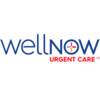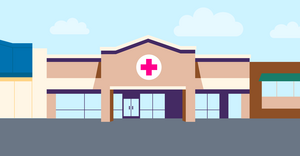Book urgent care & walk-in clinics near me in Syracuse, NY
Own a clinic? Add your location.
Help patients book appointments with you on Solv. It's free!
1 instant-book location

Northwell Health- GoHealth Urgent Care, New York Virtual
Northwell Health- GoHealth Urgent Care
Today
View moreUpstate At Home
Upstate At Home
Syracuse University Health Service
Syracuse University Health Service

WellNow Urgent Care, Syracuse
WellNow Urgent Care
Upstate Golisano After Hours Care
Upstate Golisano After Hours Care

WellNow Urgent Care, DeWitt
WellNow Urgent Care
Upstate Medical University
Upstate Medical University
WellNow Urgent Care, Fairmount
WellNow Urgent Care

WellNow Urgent Care, Camillus
WellNow Urgent Care

WellNow Urgent Care, Liverpool (W Taft Rd)
WellNow Urgent Care
WellNow Urgent Care, Fayetteville
WellNow Urgent Care
WellNow Urgent Care, Liverpool
WellNow Urgent Care
Immediate Care West
Immediate Care West
WellNow Urgent Care, Cicero
WellNow Urgent Care

WellNow Urgent Care, Clay
WellNow Urgent Care
North Syracuse Walk-in Medical
North Syracuse Walk-in Medical
Oswego Hospital Urgent Care
Oswego Hospital Urgent Care
Urgent Medical Care of Skaneateles
Urgent Medical Care of Skaneateles
Urgent Care
Urgent Care

WellNow Urgent Care, Auburn
WellNow Urgent Care
Finger Lakes Medical Care Center
Finger Lakes Medical Care Center
Own a clinic? Add your location.
Help patients book appointments with you on Solv. It's free!
Discover Syracuse Healthcare with Solv
Solv simplifies your search for healthcare in Syracuse by seamlessly connecting you with urgent care and walk-in clinic options. With Solv, you can easily locate nearby clinics, access their ratings and reviews, view their hours of operation, and directly book same-day appointments with trusted providers. Our platform offers convenient features such as saving your appointment history for instant re-bookings and tracking your health insurance usage and deductible. Whether you're seeking care for sudden illnesses or minor injuries affecting you, your family, or your children, Solv streamlines the process by allowing you to filter by insurance acceptance, pediatric services, and current availability.
What to Expect with Your Visit
When you seek urgent care in Syracuse, anticipate an efficient process designed to address your health concerns. For the best experience, it’s important to properly prepare for your visit and understand the likely expectations once you enter the clinic.
Preparing for Your Visit
A successful urgent care visit starts with good preparation. Here's how you can get ready:
- Where possible, book a visit online with Solv to save time waiting in the clinic
- Bring your ID, insurance card, and an accepted method of payment
- List your current medications, allergies, and any chronic conditions you may have
- Prepare a brief description of your symptoms and concerns, including their onset
- Think of any questions you might have for the healthcare provider
During Your Visit
You'll receive immediate attention from skilled healthcare professionals at the urgent care center focused on promptly diagnosing and treating your condition. Expect:
- A brief wait, depending on the clinic's volume and whether or not you booked ahead with Solv
- Check-in by providing your ID, insurance, reason for your visit, and completing initial registration paperwork
- A consultation with a healthcare provider to discuss your symptoms and medical history
- Possible diagnostic tests (e.g., X-rays or lab tests), if needed
Treatment may include prescriptions, wound care, or other immediate interventions.
Following your visit, ensure you understand home care instructions or medication usage. You might also receive referrals for specialist care or requests for follow-up visits to monitor your condition. Communication with your healthcare provider is key, so don't hesitate to reach out with any post-visit questions or concerns.
Urgent Care FAQs
What is urgent care?
Urgent care is a healthcare service focused on providing immediate, non-life-threatening medical attention. Urgent care centers treat conditions such as sprains, cuts, burns, and common illnesses and offer a range of services, including diagnostic and preventive care like immunizations and physicals. With an estimated 15,000 clinics in the U.S., urgent care centers operate beyond traditional primary care office hours, offering a convenient and lower cost alternative to emergency rooms for urgent but minor health issues.
What is a walk-in clinic?
A walk-in clinic is a type of healthcare facility that provides medical care to patients without the need for an appointment. These clinics cover a range of services such as urgent care, occupational medicine, and primary care with walk-in availability. They cater to non-emergent health issues, offering a convenient option for accessible medical attention. Walk-in clinics vary from free services provided by government, charity, or foundation-operated facilities to private clinics with affordable rates, serving as a practical alternative for minor illnesses and injuries outside of traditional doctor's offices and emergency rooms.
Do urgent care centers in Syracuse take appointments?
Historically, urgent care centers were strictly an on-demand, walk-in healthcare service. More recently, as consumer behaviors and expectations have evolved, many urgent care clinics have begun offering book ahead visits, allowing consumers to select a same-day or next-day time that works best for their schedule. Use Solv to find a Syracuse urgent care center that offers advanced bookings (or appointments) and book online.
Are Syracuse urgent care centers open after hours?
Yes. Most primary care doctor offices are open during routine work hours, Monday thru Friday, 9:00 am to 5:00 pm. Conversely, most of the urgent care centers in Syracuse are available after hours, on weekends, and many holidays. Typical urgent care hours are 8:00 am to 8:00 pm daily, although location-specific hours may vary.
How much will an urgent care visit in Syracuse cost?
The cost of a visit to an urgent care in Syracuse varies, with cash prices for the base visit generally ranging from $100 to $175. Additional treatments, such as lab tests, X-rays, or immunizations, can increase costs, typically between $50-150 each. If you're using insurance, expect a co-pay between $20 and $50, depending on your plan and whether the clinic is in-network. Prices differ based on location, so it's best to check directly with the urgent care center and your insurance provider for accurate cost estimates.
Everyday Healthcare, Simplified
Expert advice to help you live your best life







